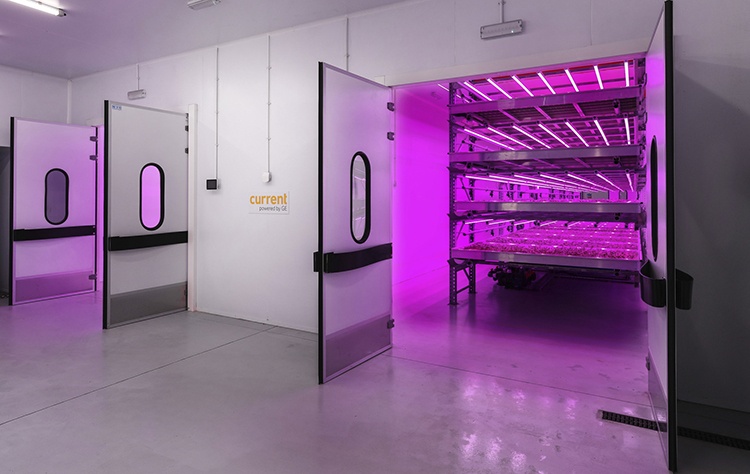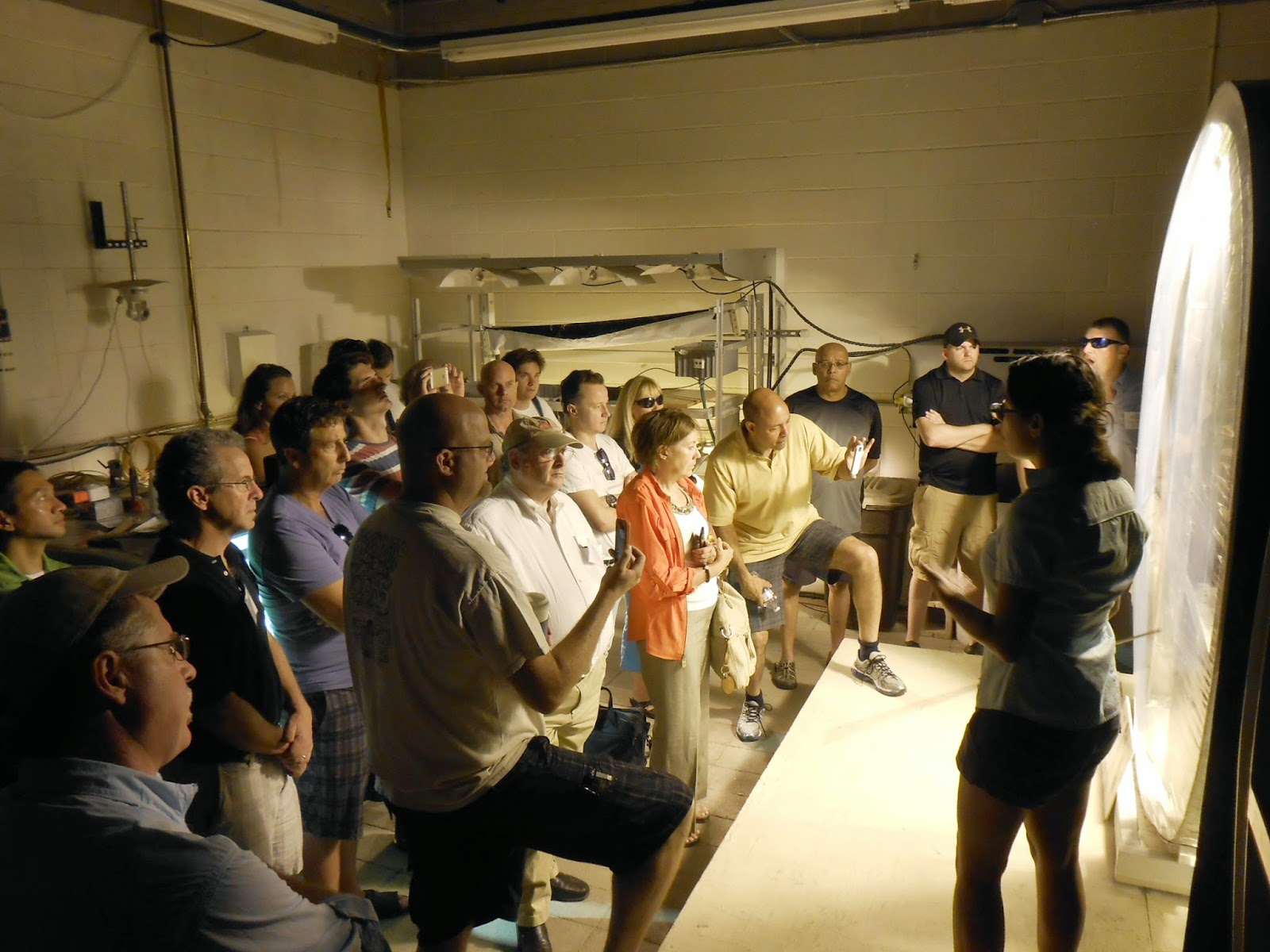Houston, Texas, June 25, 2015 — Indoor Harvest Corp (OTCQB:INQD), through its brand name Indoor Harvest™, is a design build contractor, developer, marketer and direct-seller of commercial grade aeroponic and hydroponic fixtures and supporting systems for use in urban Controlled Environment Agriculture and Building Integrated Agriculture. The Company is pleased to provide an update on the Pasadena, Texas Community Located Agricultural Research Area (“CLARA”) project.
On March 31, 2015 the Company announced the signing of a LOI with the City of Pasadena, Texas to fund the establishment and provisioning of an indoor agricultural facility (vertical farm) to be located in Pasadena, Texas. Under the LOI, the City was to provide Indoor Harvest, or a partner of their designation with City approval, with two facilities owned by the City for the sum of ten dollars ($10.00) per annum for a period not to exceed twenty (20) years as well as provide tax abatements on these properties for use in a CLARA project. In addition, the Pasadena Second Century Corp. (economic development entity for the City of Pasadena) has been asked by City officials to consider a budgetary proposal of $500,000 as seed money for the project’s economic development portion in north Pasadena.
Mr. Chad Sykes, Chief Executive Officer of Indoor Harvest, stated, “We’ve received a timeline for the project through the City. We’re currently in the final stages of drafting the MOU and expect to be in a position to begin work on the project as soon as August, based on the timeline provided by the City. All of the parties involved are working together to create an agriculture campus in Pasadena that we hope will become a model for the rest of the nation. By combining agricultural research, education and commercial operations in one campus, we’re working to build a foundation to turn North Pasadena into a leader in new, innovative agricultural trends. We’ve also begun discussions with several potential commercial partners and investors interested in locating operations at the CLARA campus. Although we don’t have any binding agreements, interest seems to be significant given the background and history of groups with whom we are discussing the project.”
The CLARA project, based on current negotiations, is expected to be divided into two phases. Phase One will focus on developing the non-profit aspects of the project and is envisioned to include the construction of a 6,000 sq. ft. vertical farm R&D facility and 6,000 sq. ft. of classroom and office space. Phase Two is envisioned to support a commercial retail operation with greenhouses built on approximately two acres of land adjacent to the vertical farm and education centers.
The Phase One vertical farm facility is intended to serve dual roles, with Indoor Harvest using the facility as a demonstration farm and R&D facility and Harris County BUILD Partnership, a non-profit group, using the facility for educational and charitable purposes. It is anticipated that the crops grown will be donated, or sold at cost, to provide fresh produce to low income families in the North Pasadena area. The entire proposed campus area, almost two city blocks, will be designed and built to allow the flow of tourists without impacting operations. The City has been asked to develop a project overview to be presented in August to department heads at the Pasadena Independent School District’s Kirk Lewis Career & Technical High School and the Continuing and Professional Development Department of San Jacinto College regarding academic curriculum development to be located at the CLARA campus.
The Harris County BUILD Partnership was established in January 2015 to eliminate the conditions that cause food insecurity in north Pasadena by launching a new healthy, accessible, and community-supported local food system. The conveners of the BUILD Partnership are the Houston Food Bank, the Harris County Public Health & Environmental Services (“HCPHES”) and The University of Texas MD Anderson Cancer Center. Additional members of the BUILD Partnership include CHI St. Luke’s Health, Memorial Hermann Health System, Brighter Bites, CAN DO Houston, City of Pasadena, Neighborhood Centers Inc., Pasadena Health Center and the U.T. School of Public Health.
The BUILD Partnership is an extension of Healthy Living Matters (HLM), a county-wide collaborative of over 80 organizations chartered in 2011 to address childhood obesity in Harris County. There is also a Pasadena-specific version of HLM called the HLM-Pasadena Community Task Force that has 23 members local to the Pasadena community.
On June 9, 2015, the Harris County BUILD Health Partnership was selected as one of seven projects out of over 300 applicants nationwide, to receive a $250,000 grant from the inaugural BUILD Health Challenge class. The announcement was made live from the National Press Club in Washington, D.C., featuring Karen DeSalvo, Acting Assistant Secretary for the U.S. Department of Health and Human Services and was followed by a congratulatory letter from LaMar Hasbrouck, MD, MPH and executive director of the National Association of County and City Health Officials who remarked, “I look forward to tracking your progress and learning more about your projects’ best practices and challenges.” A portion of this grant funding will be used towards setting up the academic and non-profit portion of the CLARA project.
The Phase One initial project meeting has already been held. Caleb Harper, the Principal Investigator and Director of MITCityFarm, attended the meeting. As part of the non-profit academic portion of the CLARA project, all research would be made open source. The MIT Media Lab’s Open Agriculture (OpenAG) Initiative seeks to make agricultural research and data more available to researchers through an innovative cloud based system. Indoor Harvest is excited to continue its relationship with MITCityFarm by looking at ways to deploy the Open Ag platform at the CLARA research facility.
Chris Higgins from HortAmericas, a company involved in horticulture product distribution, consulting and services, also attended the meeting. Indoor Harvest has selected HortAmericas as a project consultant to the CLARA project. HortAmericas will assist the project by evaluating methods and process and providing feedback through the design phase as well as assisting in preparation of standard operating procedures.
It is expected that the project MOU will be finalized and property lease executed by August 2015 based on an existing timeline provided by the City. Construction on Phase One is planned for completion June 2016.
Phase Two of the project is anticipated to be developed on two acres of land currently available adjacent to the existing properties being provided by the City. Indoor Harvest, as the primary developer of the campus, expects to be able to provide commercial operators who build on the CLARA campus a unique group of incentives and key advantages in regards to distribution, manufacturing intelligence and access to resourcing and key agricultural production talent. Phase Two timeline will be dependent upon securing commercial partners who have adequate funding and approval by the City. The Company is currently in talks with several commercial parties interested in building on the CLARA campus.
In addition, the City of Pasadena is currently considering creating a tax increment reinvestment zone (TIRZ) in the immediate area surrounding the CLARA campus. A TIRZ is a public financing structure that Texas law allows to target tax revenue helping to support redevelopment in underserved areas. Such a zone, if created, could provide an additional economic incentive for tangential services to locate on the project site. As of now, the City is not obligated to create a TIRZ zone and no such zone may ever come to fruition.
Consistent with the SEC’s April 2013 guidance on using social media outlets like Facebook and Twitter to make corporate disclosures and announce key information in compliance with Regulation FD, Indoor Harvest is alerting investors and other members of the general public that Indoor Harvest will provide weekly updates on operations and progress through its social media on Facebook, Twitter and Youtube. Investors, potential investors and individuals interested in our company are encouraged to keep informed by following us on Twitter, Youtube or Facebook.
Facebook: http://www.facebook.com/indoorharvest
Twitter: http://www.twitter.com/indoorharvest
Youtube: http://www.youtube.com/indoorharvest
ABOUT INDOOR HARVEST CORP
Indoor Harvest Corp, through its brand name Indoor Harvest™, is an emerging design build contractor and OEM manufacturer of commercial aeroponic and hydroponic system fixtures and framing systems for use in Controlled Environment Agriculture and Building Integrated Agriculture. Our patent pending aeroponic fixtures are based upon a modular concept in which primary components are interchangeable. We are developing our aeroponic and hydroponic systems for use by both horticulture enthusiasts and commercial operators who seek to utilize aeroponic and hydroponic vertical farming methods within a controlled indoor environment. Please visit our website at http://www.indoorharvest.com for more information about our Company.
FORWARD LOOKING STATEMENTS
This release contains certain “forward-looking statements” relating to the business of Indoor Harvest and its subsidiary companies, which can be identified by the use of forward-looking terminology such as “estimates,” “believes,” “anticipates,” “intends,” expects”and similar expressions. Such forward-looking statements involve known and unknown risks and uncertainties that may cause actual results to be materially different from those described herein as anticipated, believed, estimated or expected. Certain of these risks and uncertainties are or will be described in greater detail in our filings with the Securities and Exchange Commission. These forward-looking statements are based on Indoor Harvest’s current expectations and beliefs concerning future developments and their potential effects on Indoor Harvest. There can be no assurance that future developments affecting Indoor Harvest will be those anticipated by Indoor Harvest. These forward-looking statements involve a number of risks, uncertainties (some of which are beyond the control of the Company) or other assumptions that may cause actual results or performance to be materially different from those expressed or implied by such forward-looking statements. Indoor Harvest undertakes no obligation to publicly update or revise any forward-looking statements, whether as a result of new information, future events or otherwise, except as may be required under applicable securities laws.
Contacts:
Indoor Harvest Corp
CEO, Mr. Chad Sykes
713-410-7903
ccsykes@indoorharvest.com










You must be logged in to post a comment.